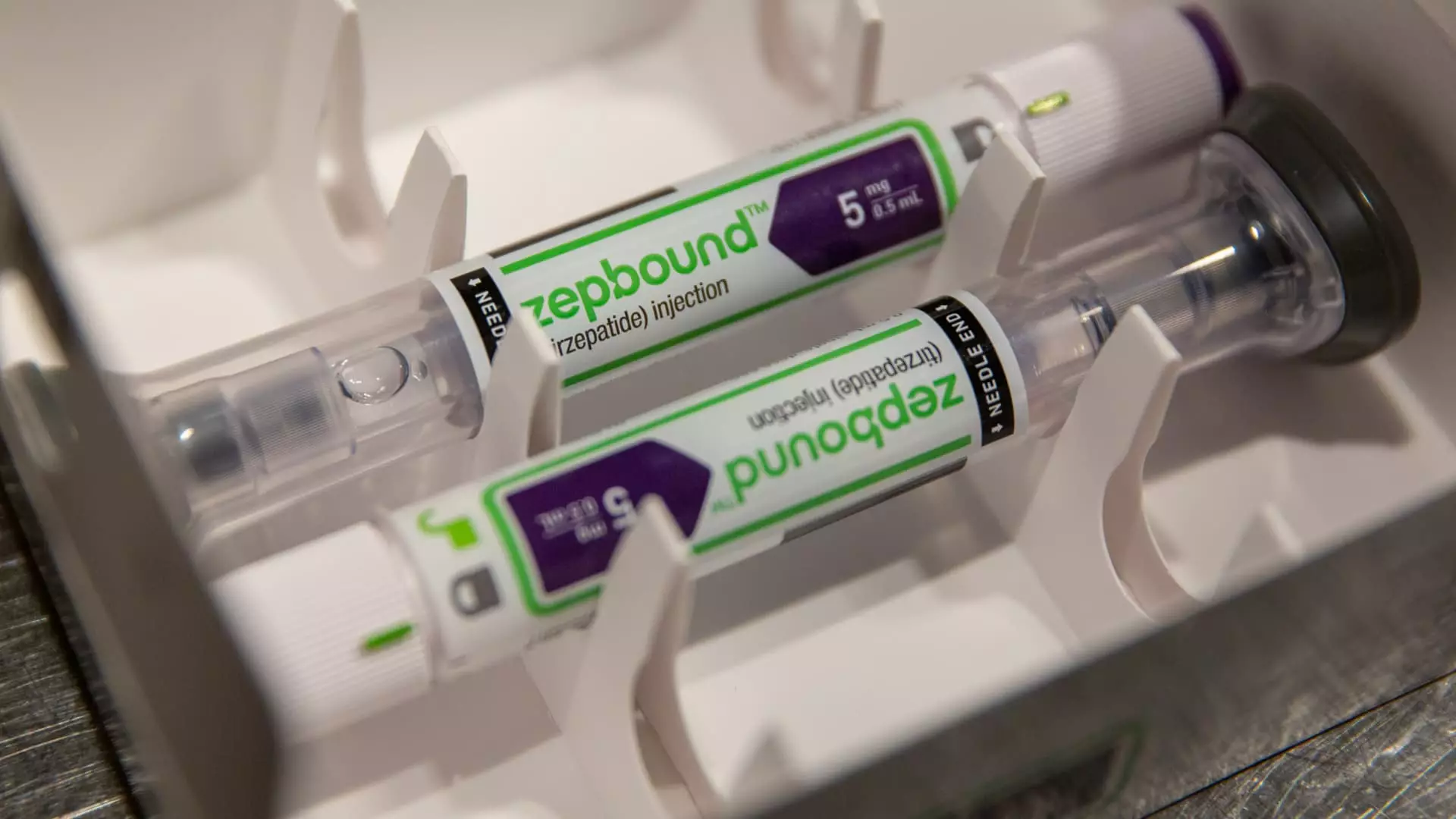Eli Lilly’s weight loss drug Zepbound has shown significant benefits in patients with a common type of heart failure and obesity, based on late-stage trial data released by the company. The findings highlight the potential health benefits of Zepbound and other popular GLP-1 drugs beyond just weight loss and blood sugar regulation. This could potentially lead to broader insurance coverage for these treatments.
Patients who participated in the trial and took Zepbound were 38% less likely to be hospitalized or die due to heart complications compared to those who received a placebo. Additionally, they were less likely to require an increase in their heart failure medication. The study also reported that Zepbound significantly improved heart failure symptoms and physical limitations in patients with heart failure with preserved ejection fraction (HFpEF) and obesity.
HFpEF occurs when the heart is unable to pump enough blood to meet the body’s needs. It is associated with a high burden of symptoms and physical limitations that can impact a patient’s daily life, including fatigue, shortness of breath, and reduced exercise capacity. In the United States alone, nearly 60% of patients with heart failure also have obesity, highlighting the need for effective treatments like Zepbound.
Eli Lilly plans to submit the results from the phase three trial to regulators in the U.S. and other agencies later this year. The company aims to bring this promising treatment option to patients with heart failure and obesity in the near future. The safety data on Zepbound was consistent with previous trials, with the most common side effects being gastrointestinal in nature and of mild to moderate severity.
Eli Lilly’s main competitor in the GLP-1 market, Novo Nordisk, has also made strides in developing treatment options for patients with HFpEF. Novo Nordisk recently submitted an application for the use of its weight loss drug Wegovy in treating these patients. The FDA has also approved Wegovy for reducing the risk of serious heart complications in patients. Both companies are actively researching their respective drugs for use in patients with chronic kidney disease and fatty liver disease.
GLP-1 drugs like Zepbound and Wegovy work by mimicking hormones produced in the gut to suppress appetite and regulate blood sugar levels. However, Zepbound targets both GLP-1 and GIP hormone receptors, while Wegovy focuses solely on GLP-1. This dual mechanism of action could offer unique benefits for patients with heart failure and obesity, providing new hope for improved outcomes and quality of life.
Eli Lilly’s Zepbound has demonstrated promising results in patients with heart failure and obesity, paving the way for potential new treatment options in this population. With further research and regulatory approval, Zepbound could become a valuable addition to the existing arsenal of medications for managing heart failure and associated conditions. It is essential to continue exploring innovative therapies like Zepbound to improve the lives of patients with complex medical needs.

Leave a Reply